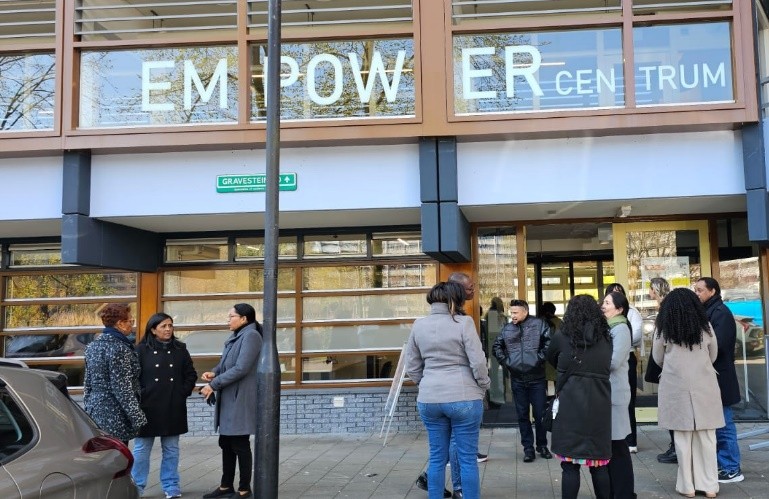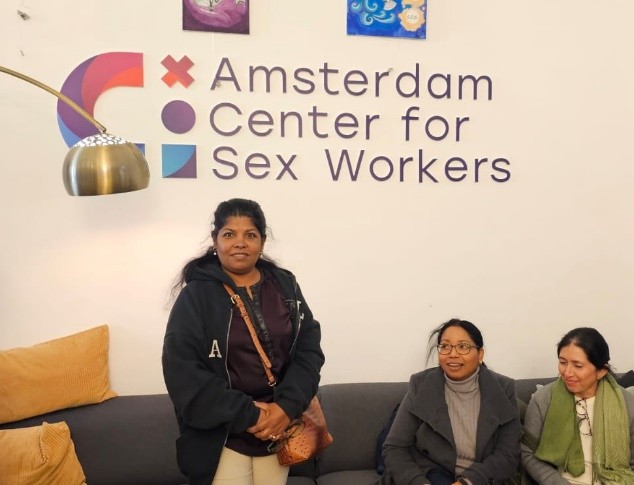As the clock ticks, the worldwide goal of ending HIV and AIDS seems to be quickly approaching time out. The hope of accomplishing this goal by 2030 means that everyone must come together to understand what challenges are being faced. Participating in PANCAP’s South to South Learning exchange held in Amsterdam in March 31- April 4, 2025, was an inspiration into how programs and activities are designed to reach a key and marginalized populations.
Young people, whilst we cater to their specific needs, do not always access clinics for whatever reason that may be. Being able to reach out to youth at a time that they think is convenient to them, and in a space that is safe, comfortable and private provides the ripe opportunity for a young person to access health services – online. I was very impressed with the Sense program from the Municipal Health Services of Amsterdam. It is an online app that provides information and access to services. By just a click, a young person could find information about STDs, learn about relationships and have a consultation, all of which are free and can be anonymous. To me this program for accessing sexual and reproductive health care made sense, as this population is very protective of their sexual actions and often do not have the financial means to receive medical care.
The places such as the GGD STI clinic, Empowerment Centre, House of Bodega and Amsterdam Centre for Sex Workers visited during this learning exchange showed that collaboration, innovation, passion and genuine care for others was the recipe for increasing the number of people that sought health care with the desire to live a healthy life. Organizations such as these, have health care providers that understand their patients’ needs and reality as well as providing care that is aimed at putting them at the centre or as I have learned, conducting motivational interviewing.

This learning exchange revealed new challenges to public health such as Chemsex, policy changes and migrant movements. But it was very reassuring to know that such challenges were already being managed and that the experience gained by others can be shared with countries facing similar present situations or upcoming ones.

